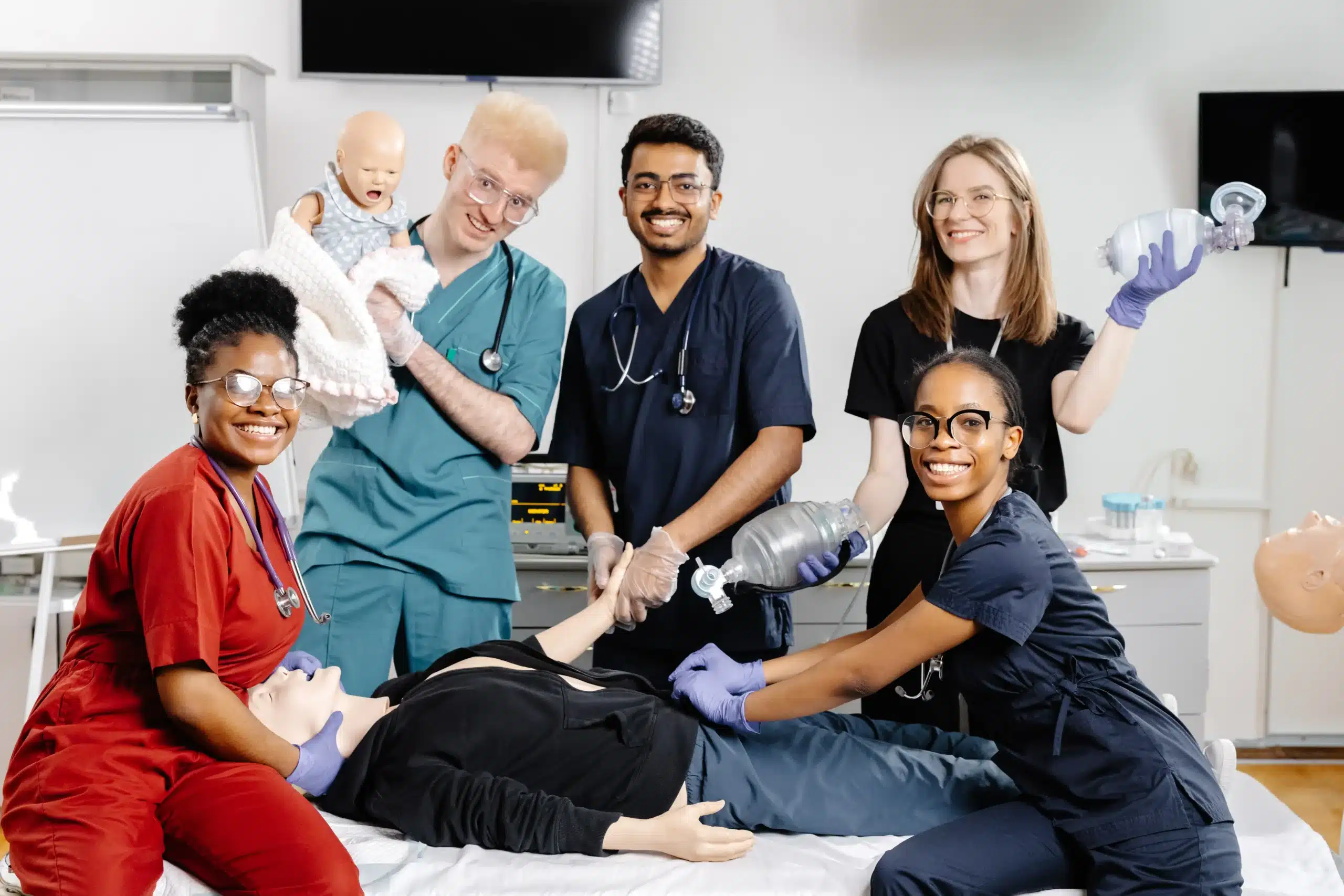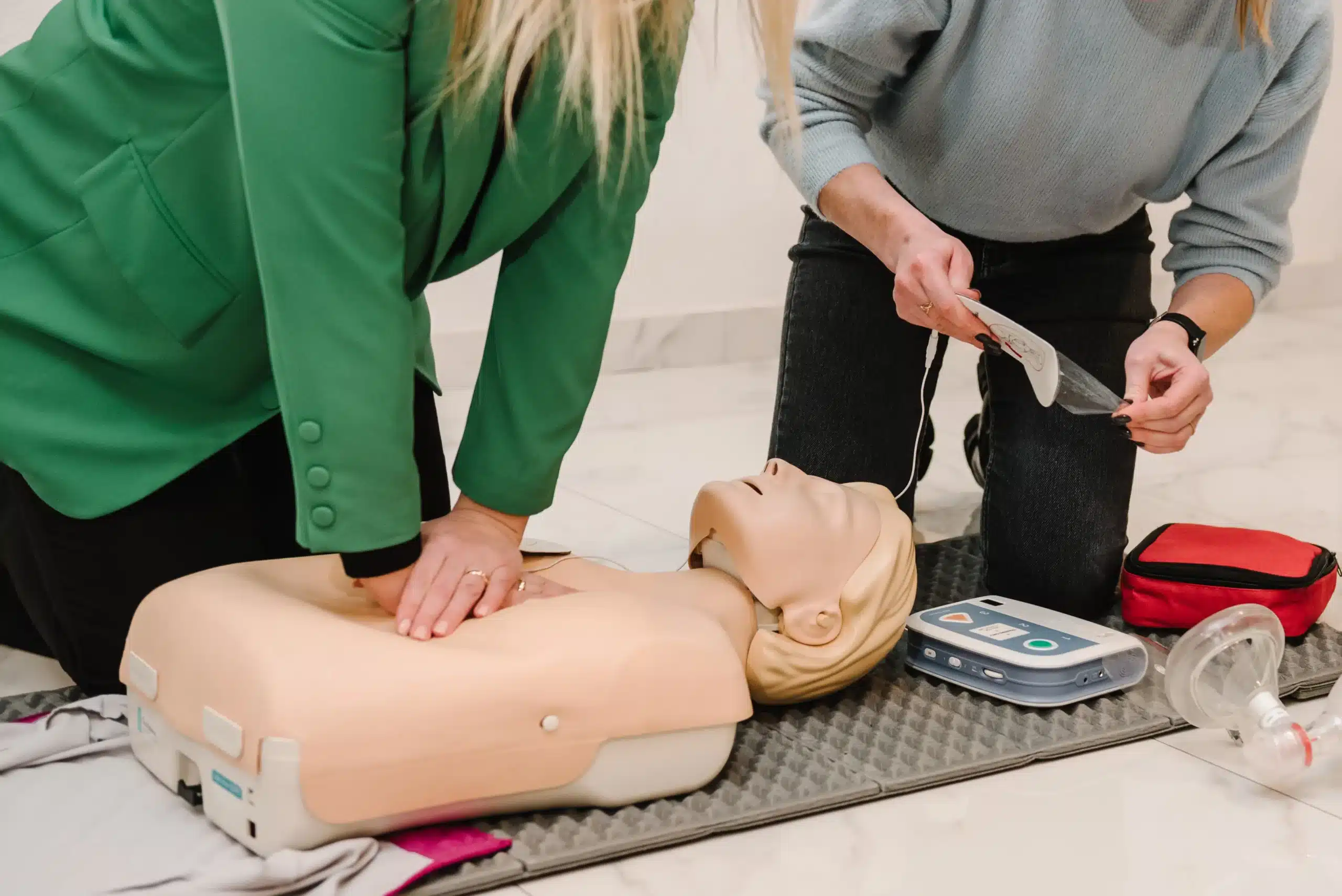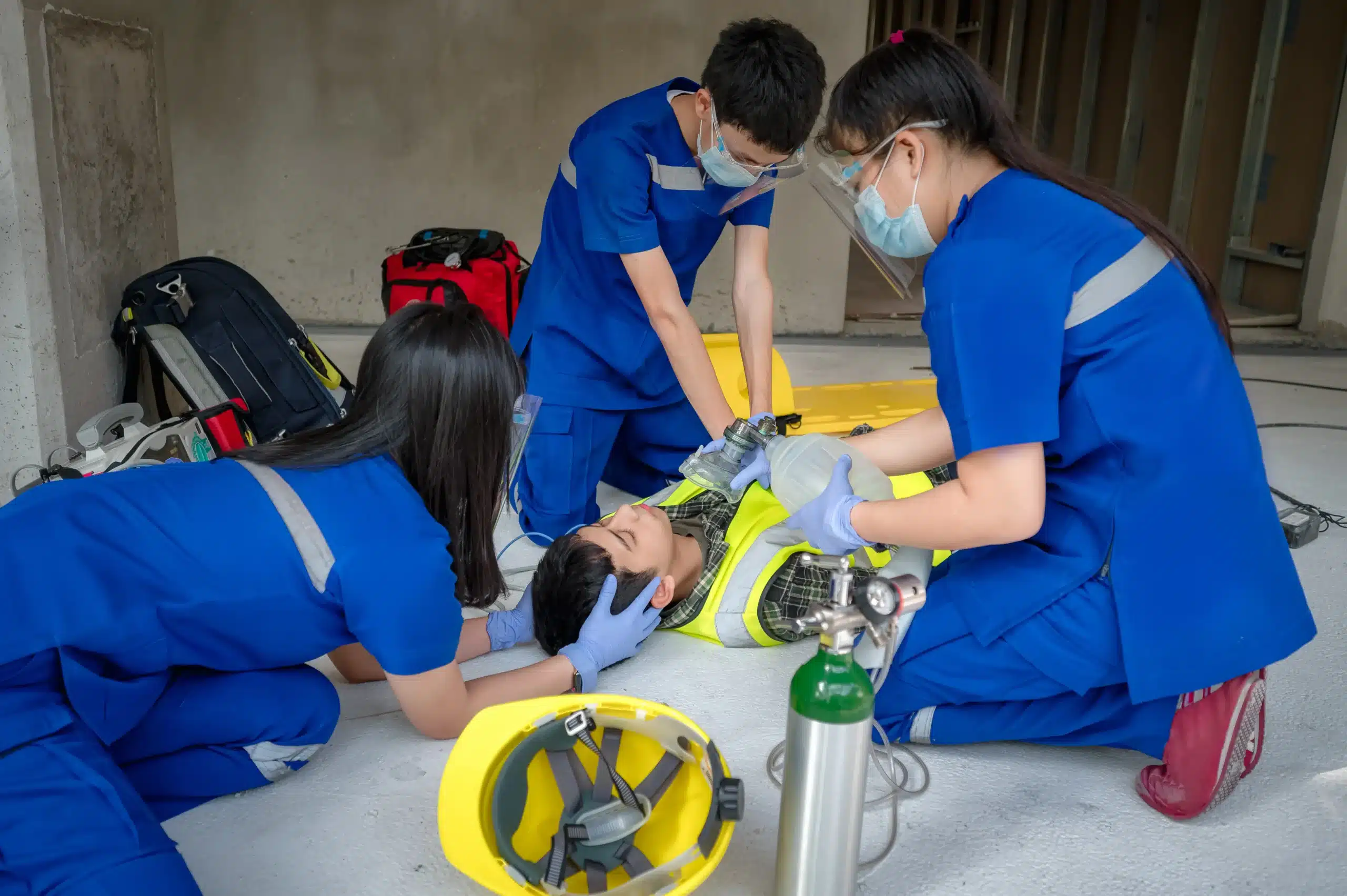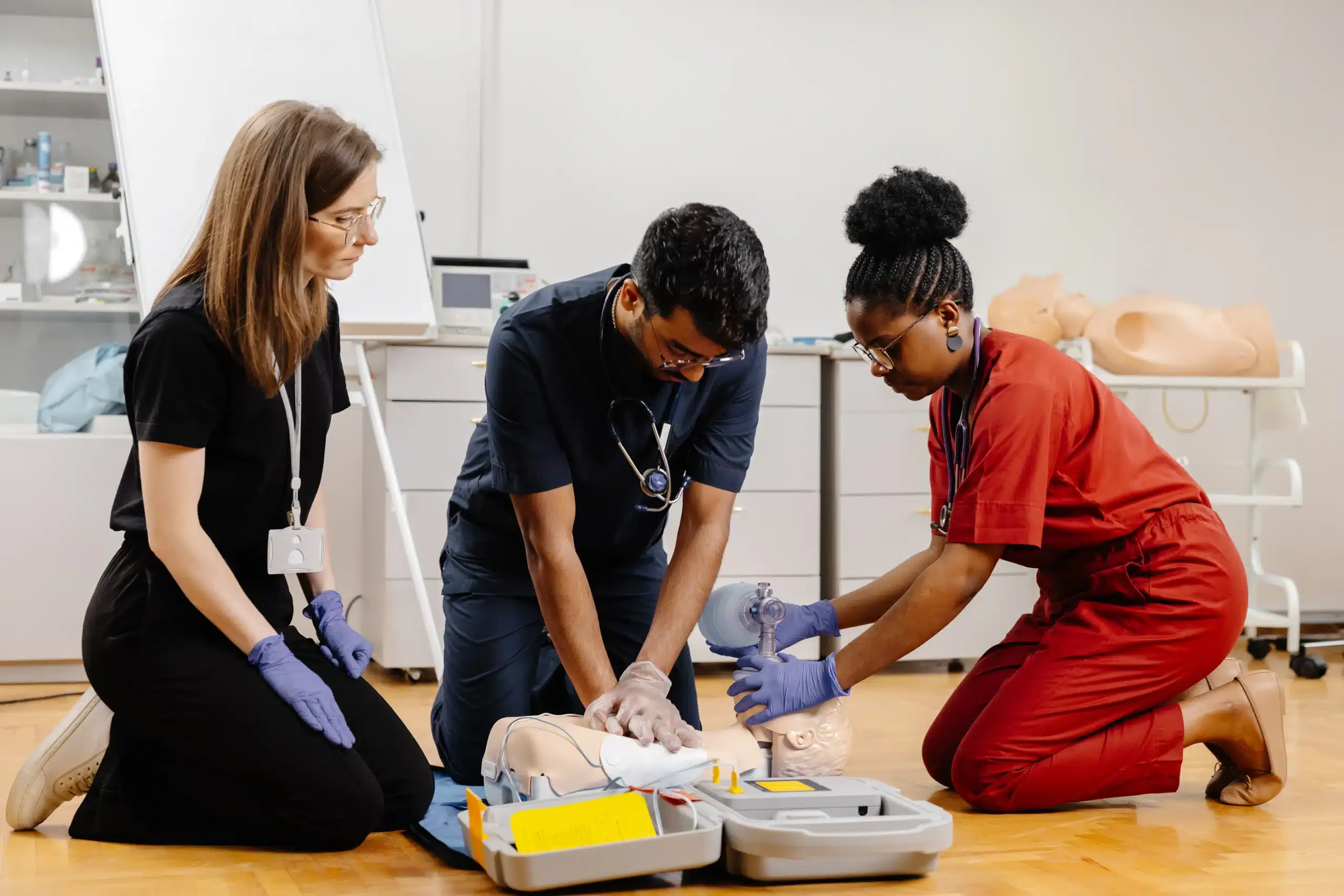Juggling the demands of a healthcare career often leaves little room for extensive training. Yet, maintaining proficiency in life-saving techniques like Advanced Cardiovascular Life Support (ACLS) is paramount. If you’re a healthcare professional in Brentwood seeking a flexible and efficient way to obtain or renew your ACLS certification, consider the benefits of ACLS HeartCode. This innovative blended learning approach combines the convenience of online modules with the practical application of in-person skills sessions. This article will explore the advantages of ACLS HeartCode in Brentwood, helping you understand the course structure, find local providers, and prepare for a successful training experience.
Key Takeaways
- ACLS HeartCode blends online learning with hands-on practice: This flexible format lets you learn at your own pace and then apply your knowledge in a practical setting.
- Master essential skills for cardiovascular emergencies: The course covers a wide range of topics, including algorithms, pharmacology, airway management, and team dynamics, giving you the tools to handle critical situations.
- Find convenient and affordable training options in Brentwood: Local providers offer comprehensive ACLS HeartCode courses, making it easier to fit this vital training into your schedule.
What is ACLS HeartCode?
ACLS HeartCode is the American Heart Association’s blended learning course for Advanced Cardiovascular Life Support. It combines online learning with in-person skills practice and testing. This flexible approach lets healthcare professionals learn at their own pace and master essential concepts before demonstrating their skills. The ultimate purpose of ACLS HeartCode is to equip providers with the knowledge and skills to effectively manage cardiopulmonary arrests and other cardiovascular emergencies.
What is ACLS HeartCode and its purpose?
The course covers a wide range of topics, including recognizing and treating cardiac arrest, managing respiratory emergencies, and building effective teamwork during resuscitation efforts. The goal is to improve patient outcomes and increase survival rates in these critical situations. The blended learning format makes training more accessible for busy professionals. Safety Training Seminars offers this blended learning format.
Key differences between HeartCode and traditional ACLS
Traditional ACLS courses typically involve two full days of in-person lectures and hands-on training. HeartCode offers a more adaptable approach. The online portion allows students to work through interactive modules, case studies, and simulations at their own speed. This personalized learning experience adapts to each student’s progress, ensuring they grasp the material before moving on. After completing the online modules, students attend a shorter, hands-on session to practice their skills and complete a skills test with an AHA Instructor. AHA ACLS courses provide more information on this topic.
Benefits of blended learning
The blended learning format offers several advantages. It allows healthcare providers to fit training into their busy schedules, minimizing time away from work. The self-paced online modules provide a more personalized learning experience, catering to different learning styles. HeartCode offers more control over time and resources, making it a cost-effective option. The interactive nature of the online modules can also improve knowledge retention and engagement.
Common misconceptions
One common misconception is that ACLS is simply advanced CPR. While CPR is a crucial component, ACLS training encompasses a much broader range of skills and knowledge, including pharmacology, airway management, and team dynamics. Another misconception is that ACLS certification is permanent. Like other AHA certifications, ACLS requires renewal every two years to ensure healthcare providers stay current with the latest guidelines.
Develop Essential ACLS Skills
This section covers the core skills you’ll develop through a blended learning ACLS course like HeartCode ACLS. These skills are crucial for any healthcare provider facing cardiovascular emergencies.
Advanced Cardiac Life Support Algorithms
ACLS algorithms provide a structured approach to patient care during emergencies. They offer clear steps for assessment, intervention, and ongoing management. Think of them as your roadmap for navigating complex situations like cardiac arrest or stroke. ACLS training often uses simulations to help you practice applying these algorithms, preparing you to make quick, informed decisions under pressure.
Pharmacology and Medication Management
Effective medication management is a cornerstone of ACLS. You’ll learn about the various medications used in cardiovascular emergencies, their dosages, and potential side effects. Understanding pharmacology in the context of ACLS is essential for providing timely and appropriate treatment, helping ensure patient safety and positive outcomes.
Airway Management and Respiratory Support
Maintaining a patient’s airway and providing respiratory support are often the first steps in a cardiovascular emergency. ACLS training covers various techniques for airway management, including the use of bag-mask devices and advanced airway interventions. You’ll gain the skills to quickly assess and address respiratory issues, ensuring adequate oxygenation and ventilation.
Team Dynamics and Effective Communication
Working effectively as a team is paramount in emergency situations. ACLS courses emphasize the importance of clear communication, defined roles, and coordinated efforts. Strong team dynamics can significantly impact patient outcomes, ensuring everyone works together seamlessly towards a common goal.
Hands-on Practice with Simulations
While the online portion of HeartCode ACLS provides foundational knowledge, the hands-on skills session is where you’ll put that knowledge into practice. Simulation-based learning offers a safe environment to practice essential skills like chest compressions, intubation, and defibrillation. This practical experience builds confidence and prepares you to respond effectively in real-world emergencies.
Find ACLS HeartCode Training in Brentwood
If you’re a healthcare provider in or near Brentwood, finding the right ACLS HeartCode training is easier than you think. This blended learning approach combines online coursework with in-person skills sessions, offering flexibility and comprehensive training. Here’s what you need to know about local providers, course structure, and cost.
Local Providers
Safety Training Seminars
Safety Training Seminars offers a range of American Heart Association courses, including ACLS, PALS, and BLS. Their presence in Brentwood makes them a convenient option for local healthcare professionals.
Brentwood CPR Classes
Brentwood CPR Classes specializes in providing AHA-certified ACLS training in Brentwood. They focus on making their courses accessible and affordable.
Course Structure and Duration
ACLS HeartCode training blends online learning with hands-on practice. You’ll start with the online portion, which typically takes 3–4 hours to complete. This is followed by a brief, 40-minute in-person skills session where you’ll demonstrate your proficiency. You’ll receive your AHA ACLS card the same day you complete both portions.
Pricing and Value
Cost Breakdown
The cost for ACLS HeartCode training through Brentwood CPR Classes is $290. This covers the online coursework, the skills testing, and your official AHA certification card. Visit their website for the latest pricing information.
Discounts and Competitive Pricing
Brentwood CPR Classes offers a price match guarantee, ensuring you receive excellent value. Check their website for current discounts.
Flexible Scheduling
With classes offered daily, including weekends, you can find a schedule that works for you. This flexibility makes it easier to fit this essential training into your routine. Contact Brentwood CPR Classes directly to see available dates and times.
Get the Most Out of ACLS HeartCode
ACLS HeartCode blends online learning with hands-on skills sessions. This approach lets you learn at your own pace and then apply your knowledge in a practical setting. Here’s how to maximize your HeartCode experience:
Succeed in online coursework
HeartCode ACLS uses an adaptive algorithm to personalize your learning path. This means the program adjusts to your progress, focusing on areas where you need more practice. Take your time working through the modules and use the available resources. Don’t rush—understanding the concepts is key.
Prepare for the hands-on skills session
The online portion builds a foundation, but the hands-on session is where you’ll truly hone your skills. Review key algorithms and procedures before attending the in-person session. This will help you make the most of your time with the instructor and equipment. After completing the online modules, you’ll practice with a voice-assisted manikin (VAM) system, simulating real-life scenarios. This bridges the gap between theory and application.
Master information and skills
ACLS certification equips you with the skills to manage cardiovascular emergencies. Focus on understanding the “why” behind the procedures, not just the “how.” This deeper understanding will help you adapt to different situations and provide the best possible care. ACLS training covers a wide range of topics, from advanced cardiac life support algorithms to pharmacology and airway management. Absorb as much as you can during both the online and in-person components.
Overcome technical challenges
While the online portion offers flexibility, technical issues can sometimes arise. Familiarize yourself with the program’s technical requirements beforehand. If you encounter problems, don’t hesitate to contact technical support. Having a backup plan, like a different computer or a stable internet connection, can also prevent disruptions.
Maintain and renew your certification
Your ACLS certification isn’t a one-time achievement. Staying current with the latest guidelines and best practices is crucial. Regularly review the American Heart Association’s resources and consider attending refresher courses. Recertification ensures your skills remain sharp and you’re prepared to handle any cardiovascular emergency.
ACLS HeartCode: Impact and Benefits
ACLS HeartCode’s blended learning format offers significant advantages for healthcare professionals seeking advanced cardiac life support certification. It combines online learning with in-person skills sessions, creating a comprehensive and flexible learning experience. But what impact does this approach have, and what are the real benefits?
Long-term benefits for healthcare professionals
ACLS certification equips healthcare providers with the advanced knowledge and skills to manage life-threatening cardiovascular emergencies. This training instills confidence and competence in handling critical situations, ultimately improving patient outcomes. The simulation-based learning aspect of ACLS courses allows providers to practice their skills in a safe environment, reducing the fear and hesitation that can arise during real emergencies. This translates to quicker, more effective responses and better patient care. Holding an ACLS certification also demonstrates a commitment to professional development and can enhance career opportunities.
Participant feedback
Feedback from ACLS HeartCode participants consistently highlights the program’s effectiveness. Many appreciate the flexibility of the online portion, allowing them to learn at their own pace. The interactive modules and simulations are often praised for their engaging and realistic nature. Participants also find the in-person skills sessions invaluable for applying their knowledge and receiving personalized feedback from instructors. This combination of online learning and hands-on practice creates a robust learning experience that prepares healthcare professionals for real-world scenarios.
Areas for improvement
While ACLS HeartCode offers many advantages, identifying areas for improvement is crucial. Further refining the online modules ensures they remain engaging and up-to-date with the latest guidelines. Improving the availability of in-person skills sessions, especially in areas like Brentwood, CA, increases accessibility for participants. Providers like Brentwood CPR Training Center are recognized for their focus on essential certifications, including ACLS, and can be valuable resources.
Post-training support
Continued support after completing ACLS HeartCode is essential for maintaining proficiency. Access to refresher courses, updated materials, and online resources helps healthcare professionals stay current with advancements in cardiac care. Some institutions, like the NIH Clinical Center, offer hybrid programs that combine online learning with in-person skills sessions for both initial certification and renewal. This ongoing support ensures that healthcare providers can confidently apply their ACLS skills.
Apply ACLS skills in emergencies
The true test of ACLS training is its application during real emergencies. The scenarios encountered in ACLS training, often based on real-life situations, prepare healthcare professionals to manage a range of cardiac crises. From recognizing and treating arrhythmias to coordinating team responses and providing post-resuscitation care, ACLS-trained providers are equipped to handle complex medical situations. This preparedness improves patient outcomes and empowers healthcare professionals to act decisively and confidently under pressure.
Related Articles
- HeartCode BLS in Concord: A Complete Guide
- ACLS Renewal in Concord: Providers & Course Options – Brentwood CPR Classes
- AHA ACLS Classes in Brentwood, CA – Brentwood CPR Classes
- PALS HeartCode Brentwood: A Certification Guide
- Online CPR Classes in Brentwood: A Complete Guide
Frequently Asked Questions
What exactly does the online portion of ACLS HeartCode entail?
The online portion is self-paced and interactive. You’ll work through modules covering essential ACLS concepts and procedures. It includes case studies, simulations, and assessments to check your understanding. Think of it as building a strong foundation of knowledge before you practice your skills in person.
I’m already certified in BLS. Why do I need ACLS?
While BLS focuses on basic life support, ACLS goes much further. It equips you with advanced skills to manage complex cardiovascular emergencies, including cardiac arrest, stroke, and respiratory failure. It’s a higher level of training designed for healthcare professionals who may encounter these critical situations.
How long does it take to complete the entire ACLS HeartCode course?
The online portion typically takes between 3-4 hours, but you can complete it at your own pace. The in-person skills session and testing take about 40 minutes. You’ll receive your AHA ACLS provider card the same day you finish both components.
How often do I need to renew my ACLS certification?
ACLS certification is valid for two years. To maintain your credentials and stay up-to-date with the latest guidelines, you’ll need to recertify before your current certification expires.
What if I don’t pass the skills test during the in-person session?
The instructors are there to support you. If you don’t pass the skills test initially, they’ll provide guidance and allow you to retest. The goal is to ensure you’re fully competent before you leave with your certification.








